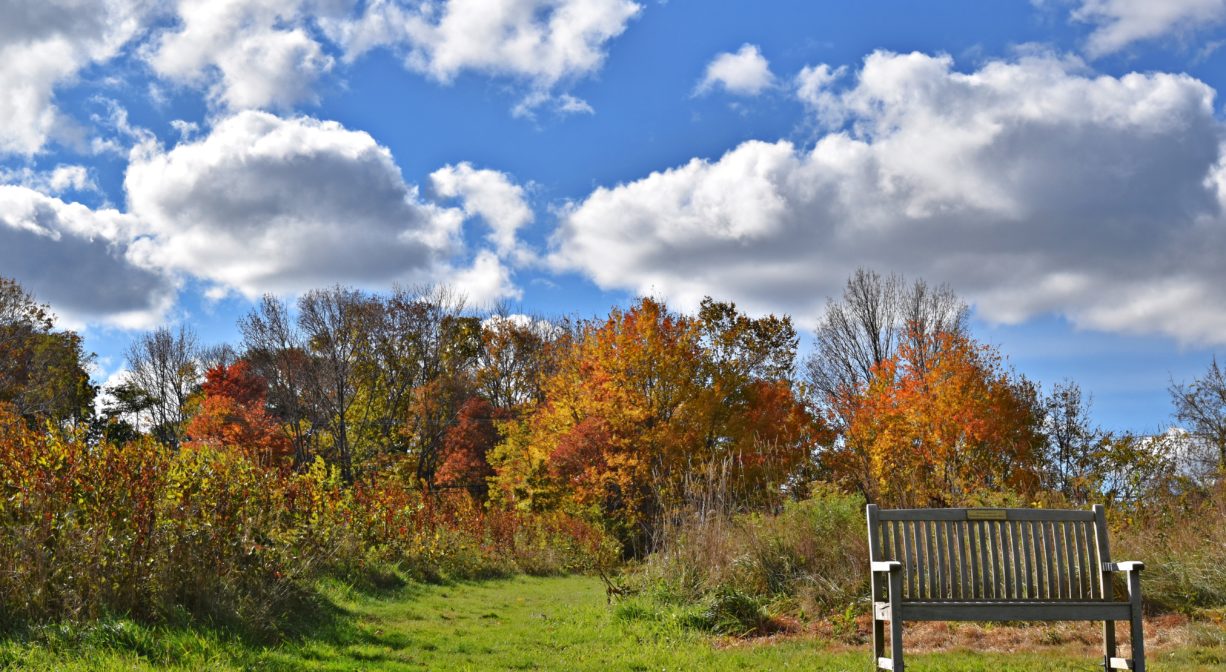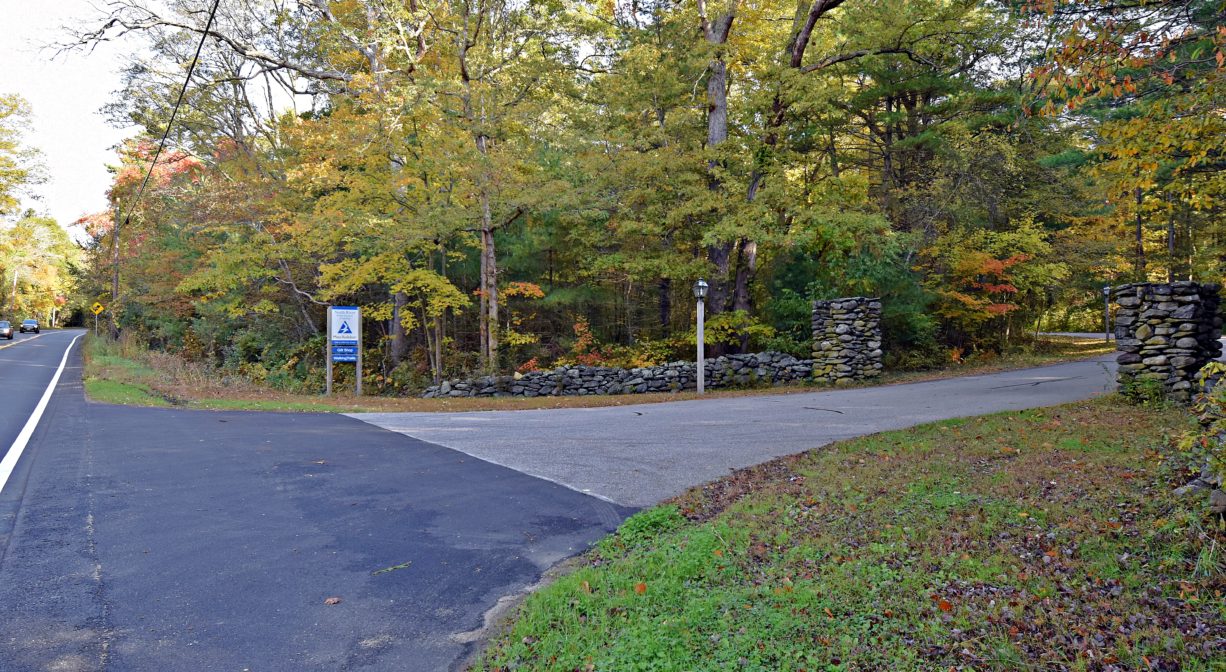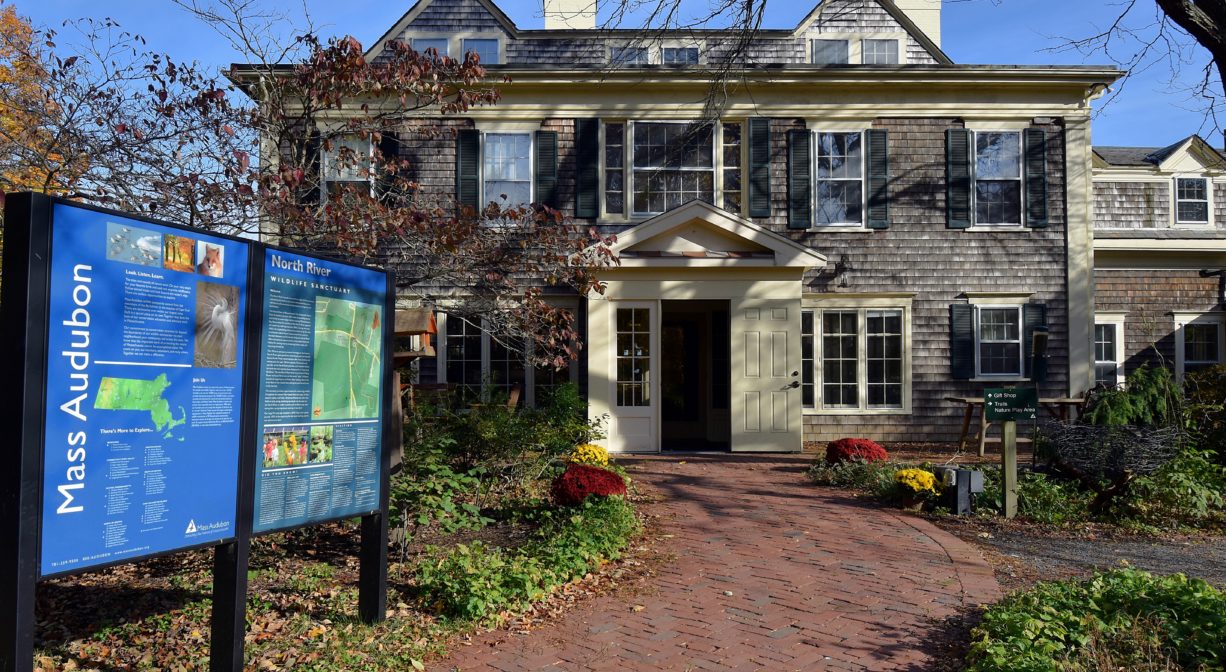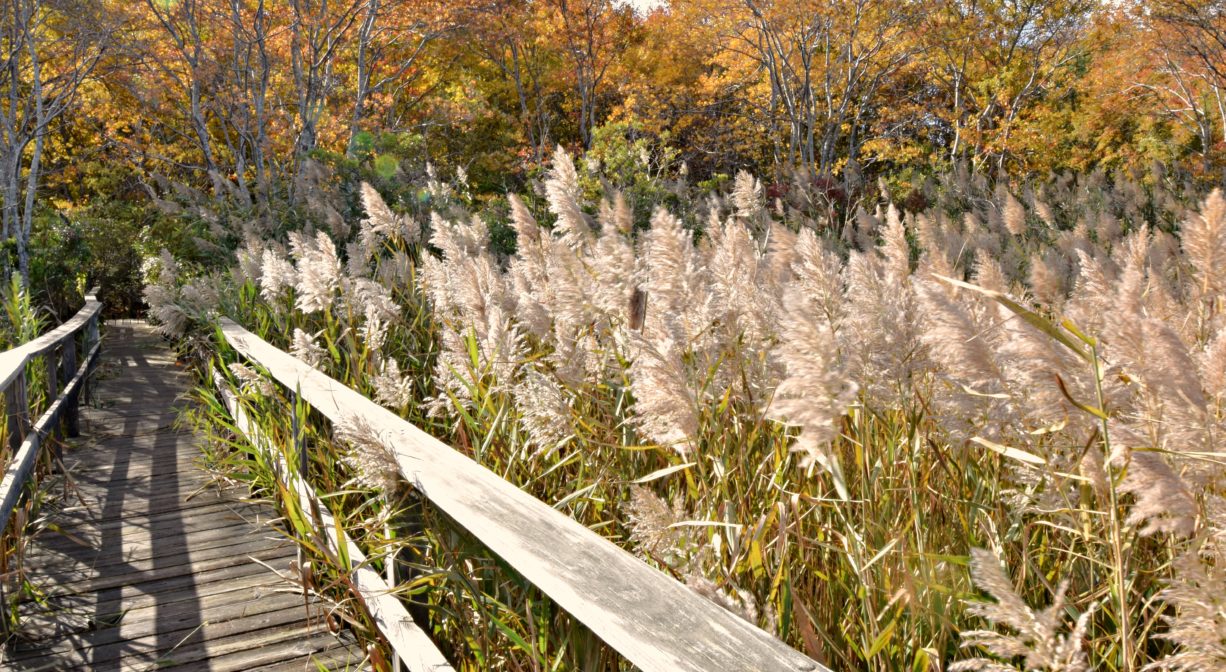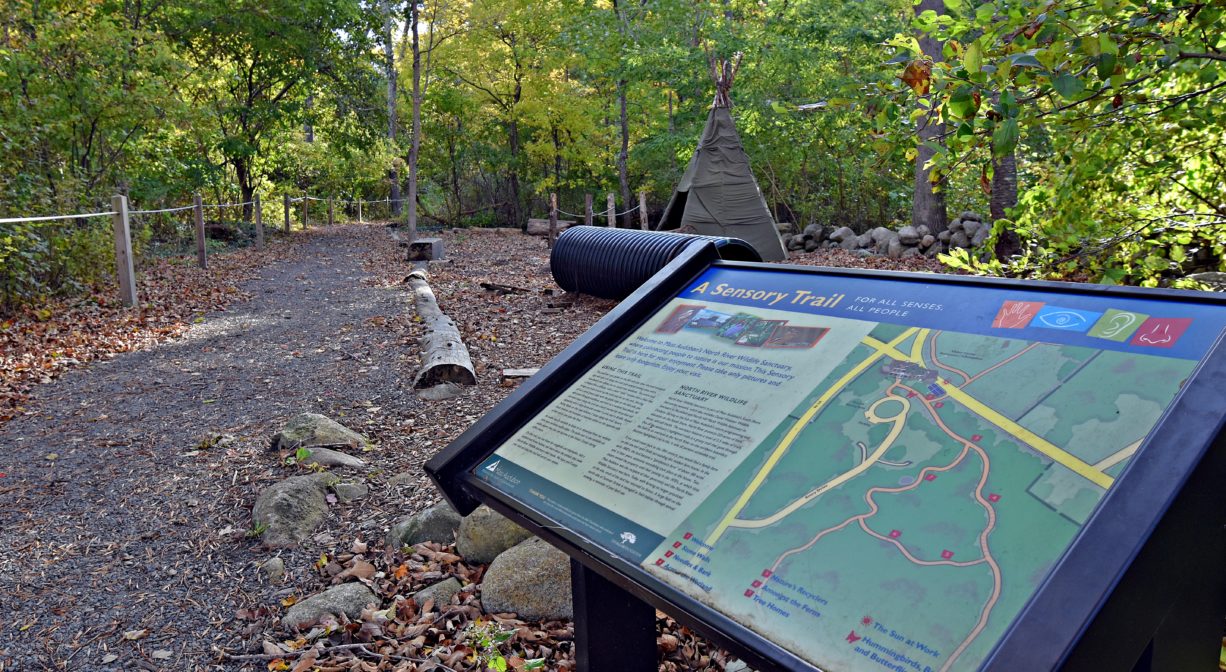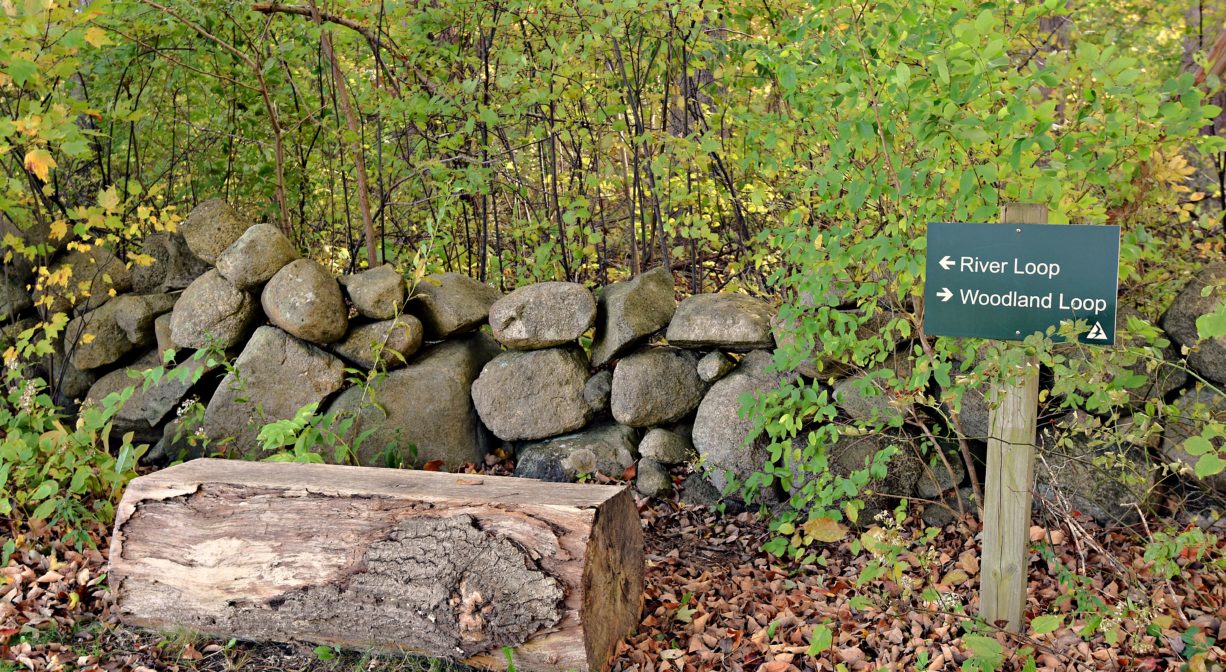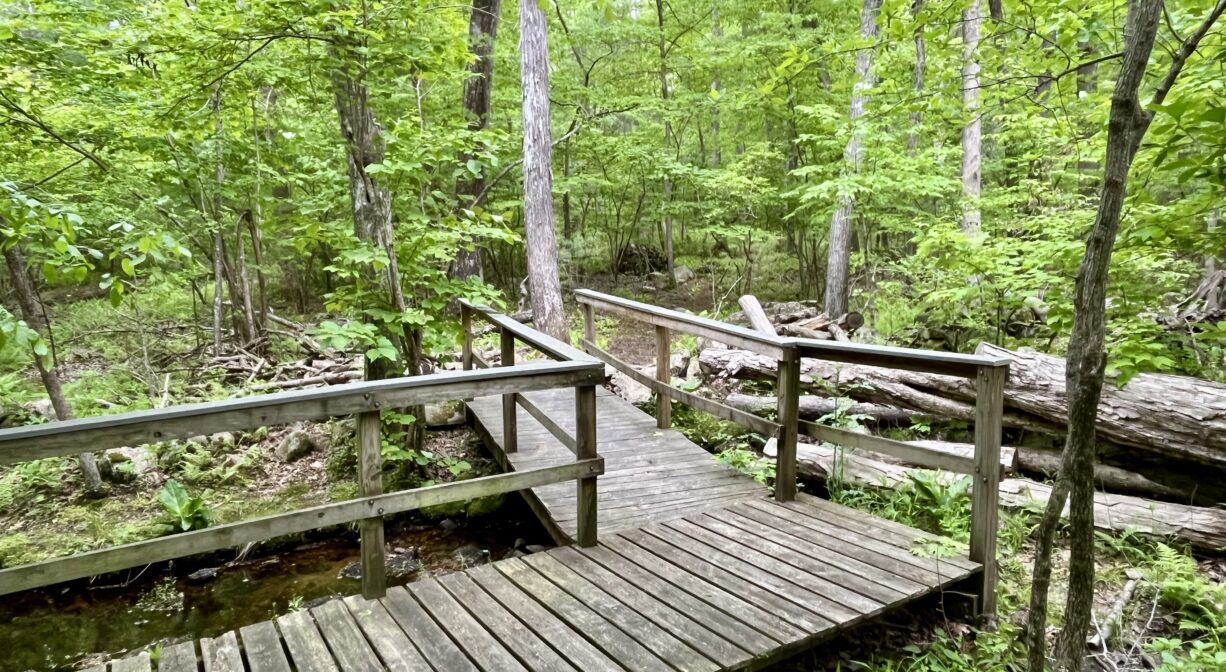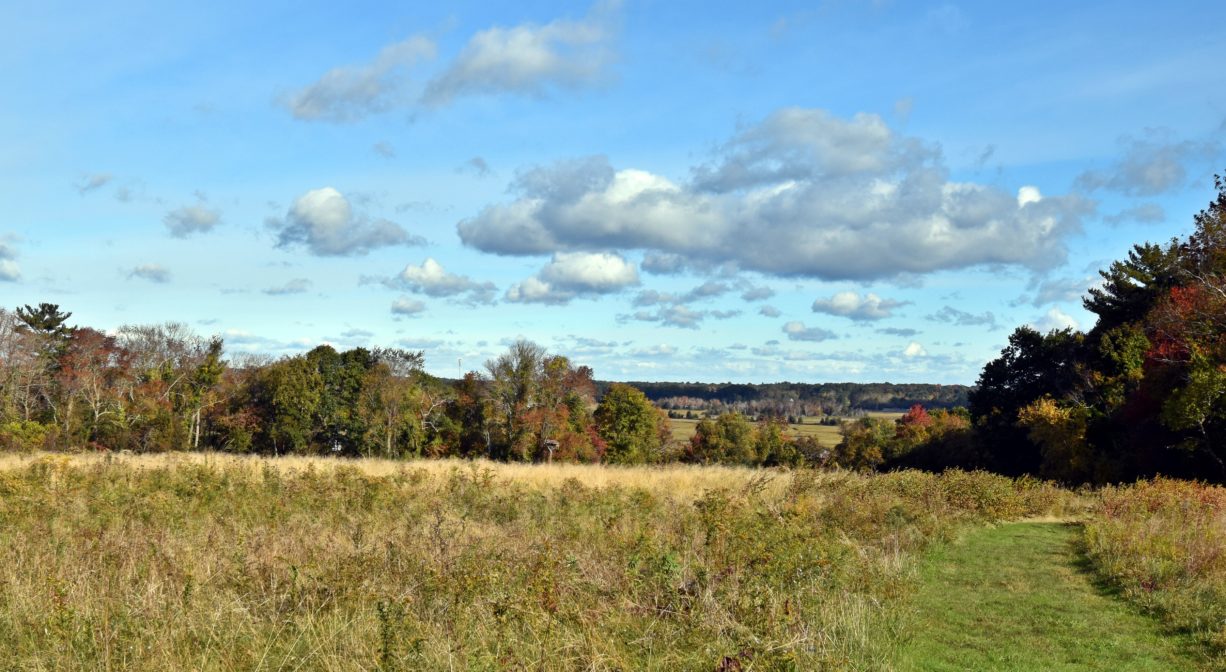Mass Audubon's North River Wildlife Sanctuary, 2000 Main St, Marshfield, MA 02050, USA
https://www.massaudubon.org/get-outdoors/wildlife-sanctuaries/north-river
Owned By: Mass Audubon
Mass Audubon’s 225-acre North River Wildlife Sanctuary features 2.5 miles of trails through forest, meadow, and red maple swamp, including a 0.25 mile universally accessible sensory trail. There is also a Nature Play Area area and several old stone walls. A boardwalk leads to an observation platform on the North River and its estuary — one of the sanctuary’s many attractions. An additional boardwalk leads to a bridge and observation platform on Hannah Eames Brook.
Hunting is not permitted on this property.
Features
This land is within the region of the Massachusett (or Massachuseuk). To learn more about local Native American tribes, we encourage you to interact with their members. The Mattakeeset band of the Massachusett, and the Massachusett tribe at Ponkapoag, both share information on their websites.
In 1702, Amos Rogers received a land grant from Plymouth Colony, established Riverside Farm on this site. He married Rachel Wales. Through the years, the property passed to their children and grandchildren, before shifting out of the family and eventually to Enos M Stoddard of the Boston Ice Company. By then the land was used less for agriculture and more as a summer estate.
Stoddard’s heirs, Elizabeth and Constance Killam, eventually inherited the property. After their deaths in 1975 and 1977, their wills deeded the buildings and grounds to Mass Audubon, along with an endowment. North River Wildlife Sanctuary opened to the public in 1980. The historic estate building now serves as the property headquarters. You can read a much more detailed history of the North Wildlife Sanctuary in John Galluzzo’s book The North River: Scenic Waterway of the South Shore.
In 2021, Mass Audubon worked with the Town of Marshfield to set aside an additional 13 acres of land adjacent to North River Wildlife Sanctuary. This parcel of mixed pine/oak forest includes a tributary to Hannah Eames Brook, and serves as an important buffer to neighboring wetlands to help reduce the effects of flooding and other climate change impacts. The town owns the property, as conservation land, and Mass Audubon holds a Conservation Restriction on it, which preserves the land in perpetuity.
Trail Description
Four trails ranging in individual length from .25 miles to .75 miles are all well-marked and easy to navigate, but exposed roots and rocks are common. There are 5 trail maps posted along the way.
• The universally accessible Fern Loop Sensory Trail trail leads through a red maple forest, over boardwalks, and through a leafy fern glen. It is geared especially toward children.
• The River Loop Trail circles open a field, and includes two short spurs — one to a boardwalk through a wet red maple forest, and the other to an observation platform on the North River.
• The Woodland Loop Trail passes through a mixed forest featuring oak, witch hazel, and American holly, and includes a short spur to Hannah Eames Brook.
• The Hannah Eames Trail, named for an early resident, leads through a glen of lush ferns, and then through a mixed forest. Boardwalks can be slippery when wet. Strollers are welcome but may have difficulty traversing some terrain.
Habitats and Wildlife
This North River Wildlife Sanctuary offers several trails and boardwalks that wind through open fields and oak forest, and past old stone walls. There is also an observation platform on the North River. The property attracts many different species of animals, such as harbor seals, deer, coyotes, geese, pheasants, red tail hawks, dragonflies, butterflies, and squirrels.
Many birds species ranging from turkeys to woodpeckers to red tail hawks call this area home. Listen for black-capped chickadees and white-breasted nuthatches in the woods. Purple martins nest in the gourds that are hung seasonally above the meadow. Look for the peregrine nest along the way to the North River. Other bird species observed here include: yellow warbler, barn swallow, vireo, northern cardinal, red-winged blackbird, and osprey.
Trees include maple, pine oak, beech, holly, hornbeam, and elm, along with ferns, blueberry, witch hazel and sweet pepperbush. Chipmunks often take up residence in the stone walls. Watch for squirrels collecting acorns from the oak trees. See if you can spot the vernal pool, along the boardwalk. Mink can sometimes be spotted at Hannah Eames Brook, as well as deer grazing in the large field. Look for butterflies and dragonflies in the fields as well; it was recently re-planted with nectar plants to encourage their presence.
Watch for and harbor seals frolicking in the water near the riverside platform. At low tide, if you look down into the mud, you may also see blue mussels, which the NSRWA seeded there.
Hannah Eames Brook flows through the property, emptying into Murdocks Pond, at the intersection of Prospect and Summer Streets. Macombers Creek leads from Murdocks Pond to the North River.
The North River rises from marshes and springs in Weymouth, Rockland and Hanson. It is approximately 10 miles in length, with its source at the confluence of the Indian Head River (Hanover) and Herring Brook (Pembroke). From there it flows through the towns of Hanover, Pembroke, Marshfield, Norwell, and Scituate to the Atlantic Ocean between Third and Fourth Cliffs, draining approximately 59,000 acres along the way.
Historic Site: No
Park: No
Beach: No
Boat Launch: No
Lifeguards: No
Size: 225 acres, with 2.5 miles of trails in total
Hours: Dawn to Dusk
Parking: On-site parking for 21 vehicles at the office building at 2000 Main Street (Route3A) Marshfield.
Cost: Free for members; small fee for non-members.
Trail Difficulty: Easy
Facilities:
Nature Center, with restrooms. Picnic table, 4 benches, boardwalks, observation deck on North River, bridge and observation deck on Hannah Eames Brook, Nature Play Area. Two viewing scopes for nature observation. Trash and pet waste receptacles.
Dogs: No
Boat Ramp: No
ADA Access: Sensory Trail is ADA accessible. The Nature Center and parking are also accessible. Trail signs include Braille.
Scenic Views: Yes
Waterbody/Watershed: Hannah Eames Brook and North River (North River watershed)

